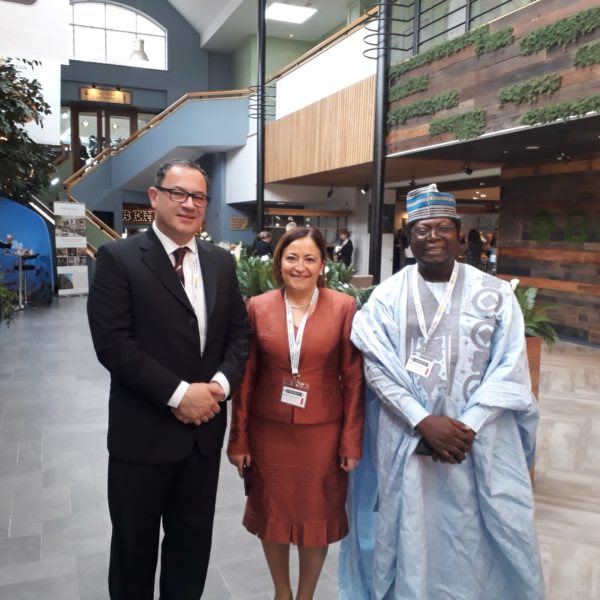CDVTA early years (1998-2003) were for organizational building. CDVTA established a formal ‘Walking Together’ collaboration with the Methodist Relief and Development Fund-MRDF (now All We Can) in 2004, a partnership that lasted for 15 fruitful years (2004-2019).
During this time the partnership led to the positive transformation of over 950,000 marginalised elderly women and men in rural communities in Cameroon. As a result of this successful partnership there are more than 450 elderly social groups established to combat loneliness among older people, encourage social inclusion and enhance community solidarity in income generating activities in Anglophone Cameroon.
Elderly beneficiaries are economically empowered through trainings as a means of improving on their capacities to fight poverty through income related livelihoods in their communities. More importantly the All We Can-CDVTA 15 year regular partnership was a period of great experimentation and bold moves, thanks to a DfID five year funding through All We Can, which further promoted rights and improved livelihoods of the elderly in Anglophone Cameroon.

CDVTA also established a strategic partnership with Nouvelle Planete Switzerland, which continues to bring benefits to rural communities in Cameroon including but not limited to; 16 schools constructed and equipped for the education of young girls and children (41 classrooms), 64 gender sensitive VIP latrines to improve hygiene and sanitation for girls in schools, 3 gravity-driven water supply schemes for 3 rural communities, 52 sustainable vegetable gardens and 51 group farms established to support innovative resilient agriculture, 4 beekeeping projects with 32 apiaries, over 1,000,000 trees planted to protect dry farmlands and preserve natural ecosystems.
Finally new partnerships continue to support elder care initiatives, health education, village water-supply schemes, food security, vertical farming technology, protection of farmlands, preservation of natural resources, inclusive societies and economic empowerment of people with disability in Cameroon.
Over the past five years (2015-2019) CDVTA had been working to achieve its objectives based on three strategic directions which were; advocacy & elderly rights promotion, sustainable livelihoods and welfare. For over sixty years, the elderly have been all but invisible in international development policy and practice. Many vulnerable elderly people in the informal sector remain without possibilities for accessing their basic rights and means of improving their livelihoods. The symptoms of this process of relative decline on the elderly are very clear (negative social attitudes towards them, lack of awareness on their rights, poverty, absence of national ageing policies in many developing countries and limited development actions for their care).
This is what motivated CDVTA to focus its care activities on the elderly in the last 15 years. The elderly, typically characterized as economically unproductive, dependent and passive, have been considered at best as irrelevant to development and at worse as a threat to the prospects for increasing prosperity (Gorman, 1999).
However, due to threats such as; limited opportunities for funding on elderly issues in Africa in general and Cameroon in particular, lack of interest from donors for elderly programs and conditions for assessing funding for the elderly becoming tougher, CDVTA worked with All We Can UK to review the last 5 year strategy of CDVTA and support CDVTA to develop its next 5 year strategy (2020-2025). This strategic plan is intended to determine the future strategic direction of CDVTA work both in Anglophone and Francophone Cameroon
This new strategy has;
- Reformulated a new vision and mission, for CDVTA based on a new strategic positioning that will focus more on vulnerable people’s needs and less on specific target groups.
- Established a new partnership framework for CDVTA towards supporting people with disabilities, disadvantaged children, youth, women, promote innovative resilient agriculture, vertical farming technology and preserve natural ecosystems

